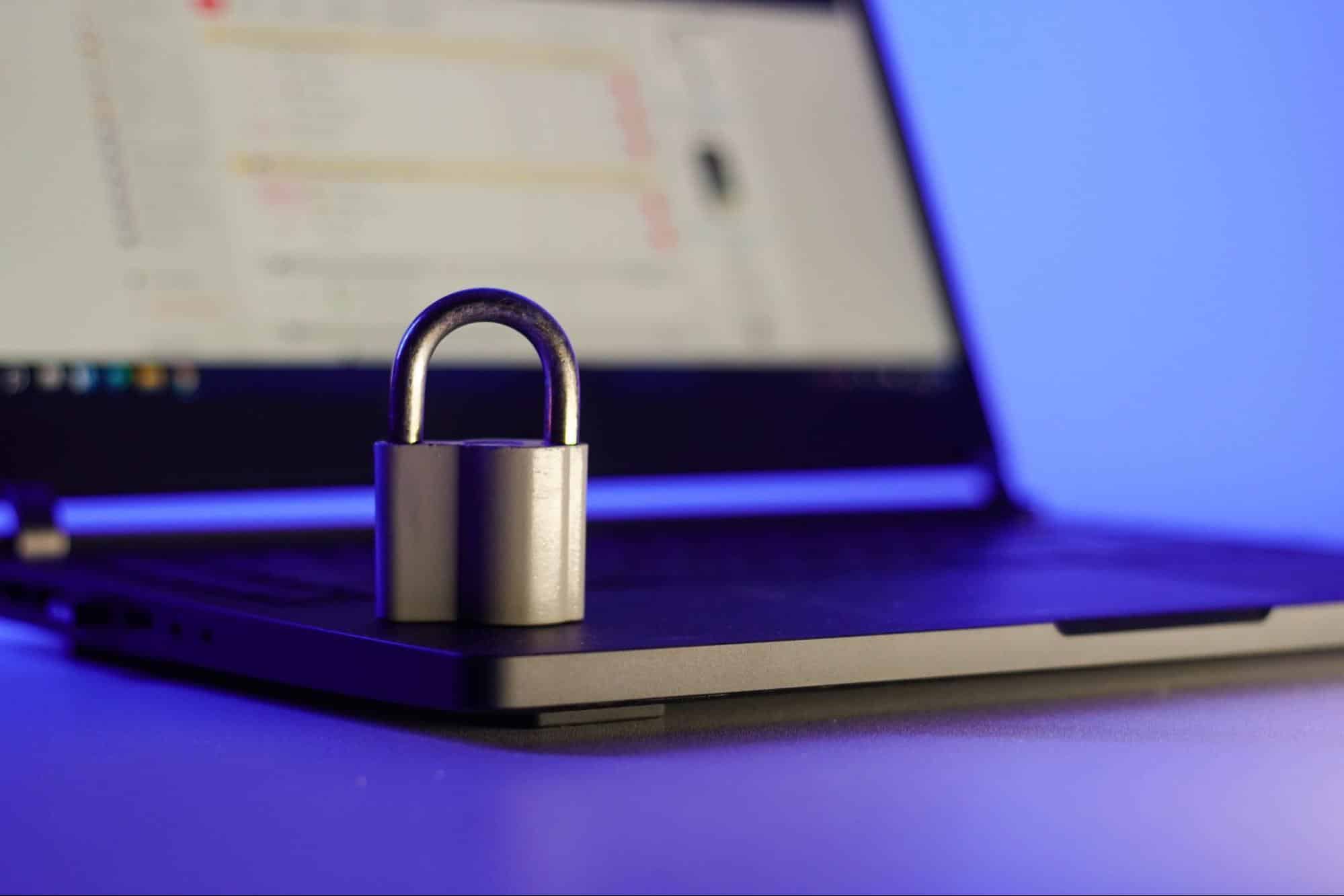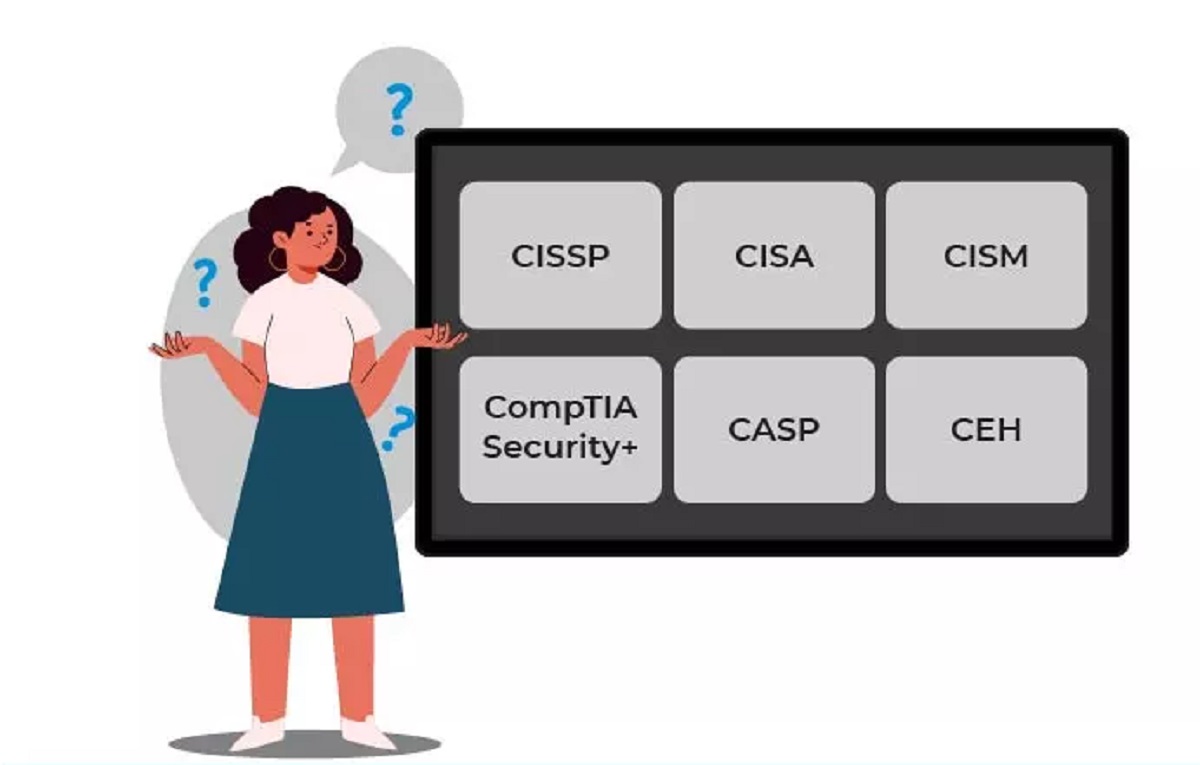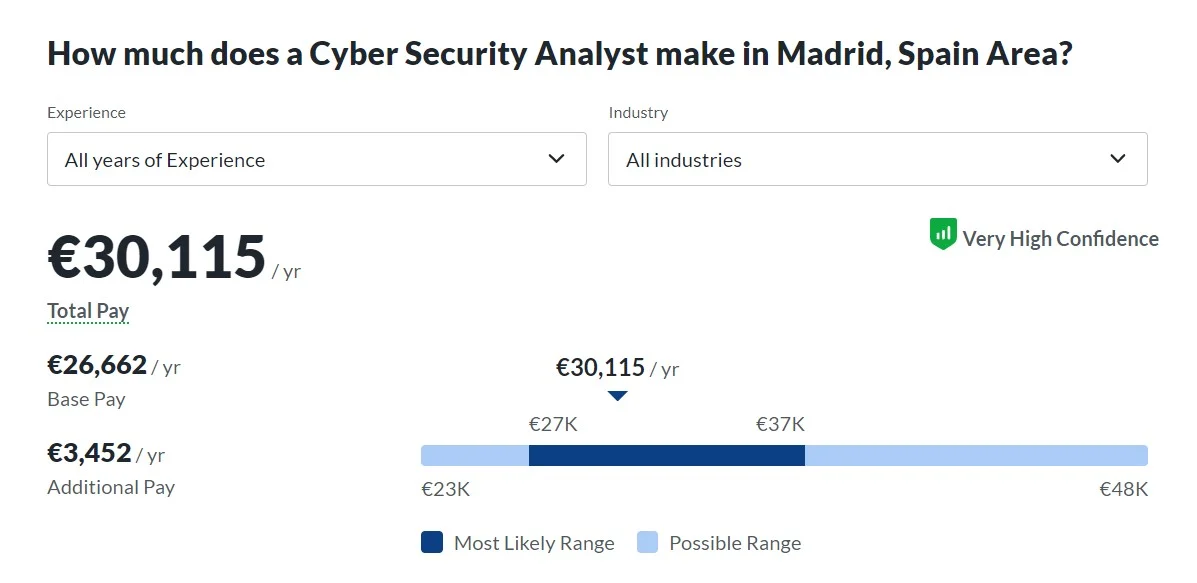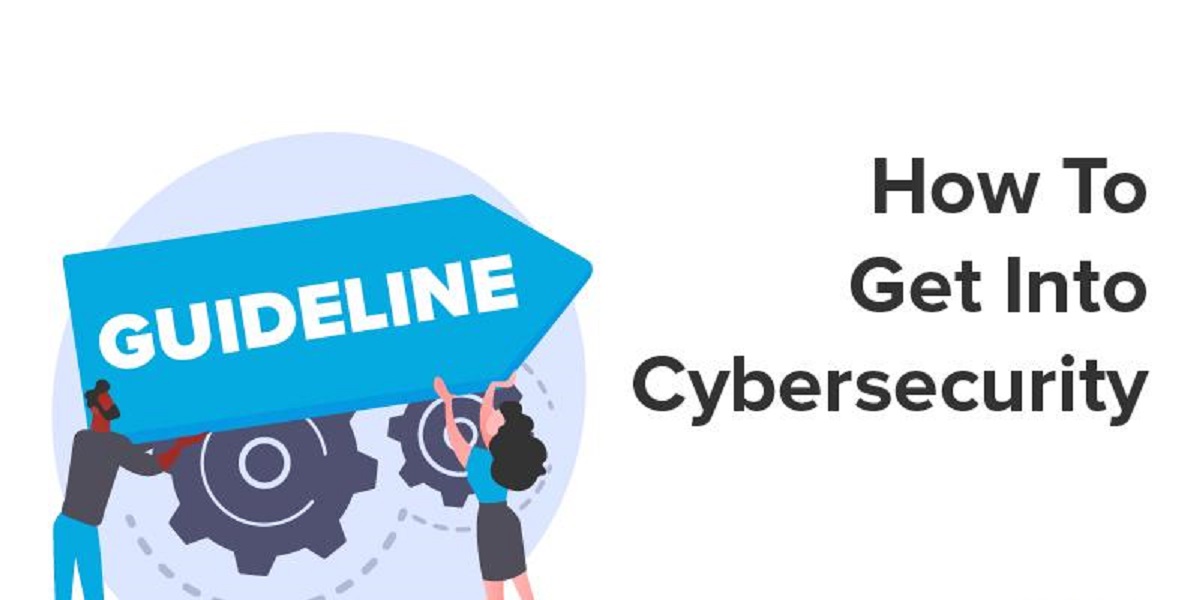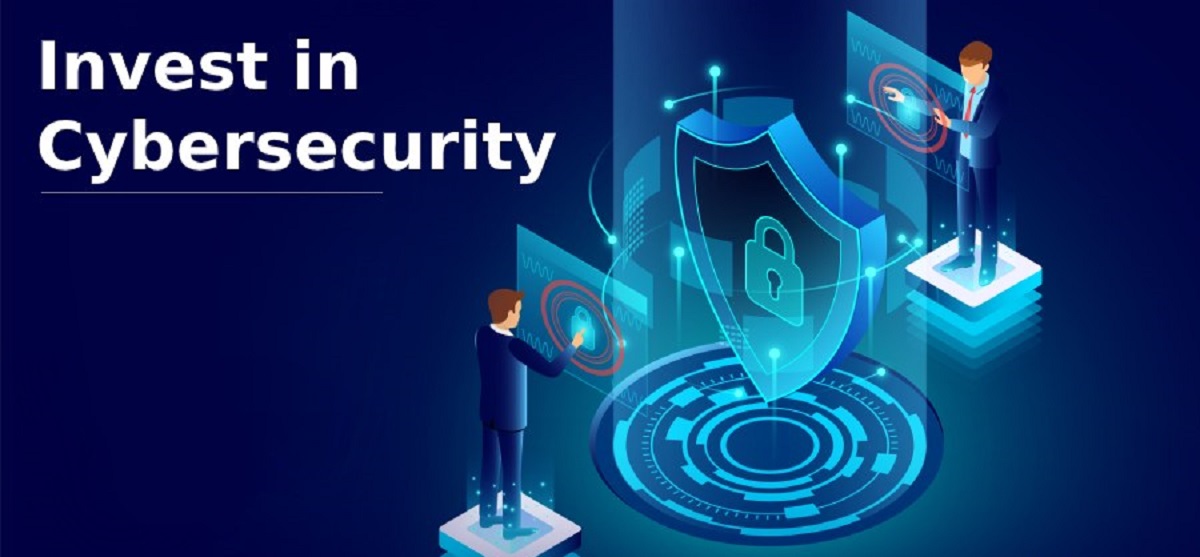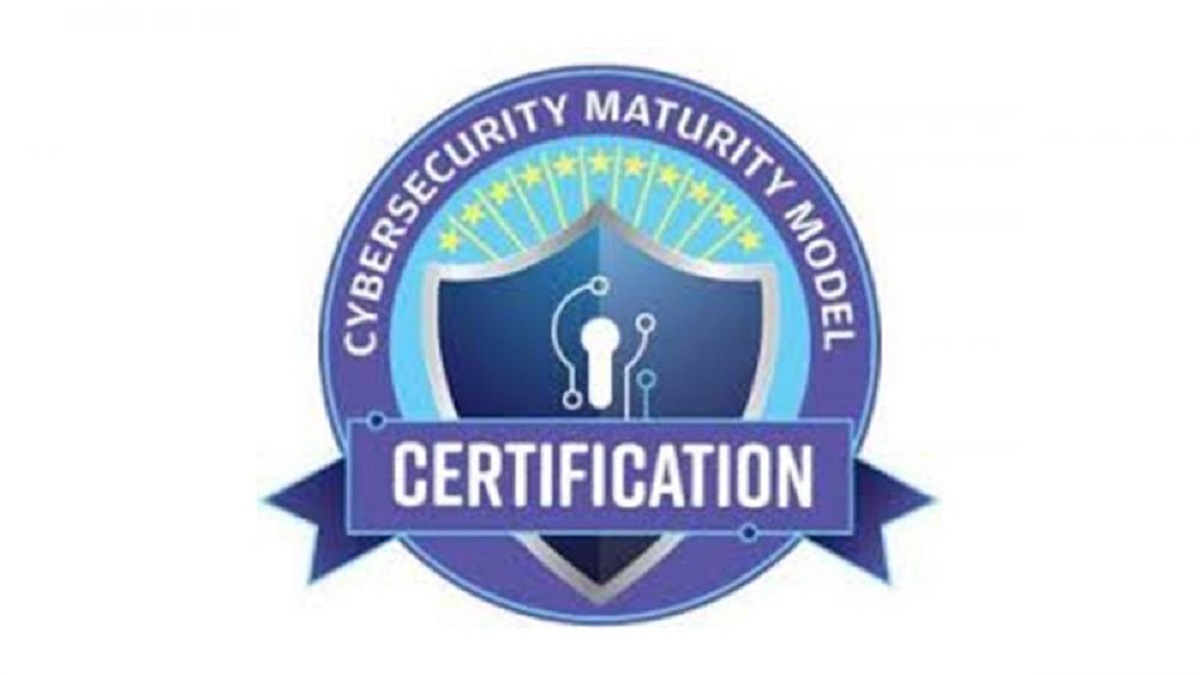Introduction
Cybersecurity has become a critical concern in today’s digital landscape. With the increasing number of cyber threats and data breaches, organizations have recognized the need for professionals who can protect their valuable information and systems from malicious attacks. This realization has led to a growing demand for individuals with expertise in cybersecurity.
A cybersecurity certificate is a valuable credential that can help individuals gain the necessary knowledge and skills to succeed in this field. Whether you are a recent graduate, a working professional looking for a career change, or a seasoned IT professional seeking to enhance your skills, obtaining a cybersecurity certificate can open up numerous opportunities for you.
In this article, we will explore the world of cybersecurity certificates, including the different types available, the benefits of having one, and the career opportunities they can offer. We will also discuss the industries that require cybersecurity professionals and provide tips on how to choose the right certificate program for your needs.
By the end of this article, you will have a clearer understanding of the value of a cybersecurity certificate and how it can pave the way to a rewarding and in-demand career in cybersecurity.
Understanding Cybersecurity Certificates
Cybersecurity certificates are credentials that validate an individual’s knowledge and expertise in cybersecurity. They are obtained through specialized training programs or courses that focus on various aspects of information security. These certificates are designed to equip individuals with the skills necessary to protect computer systems, networks, and data from unauthorized access, theft, and damage.
Cybersecurity certificates are typically awarded by professional organizations, educational institutions, or industry-specific certification bodies. These organizations ensure that the certificate programs meet specific standards and cover a comprehensive range of cybersecurity topics.
Obtaining a cybersecurity certificate demonstrates your commitment to excellence in the field and provides employers with tangible evidence of your expertise. It also serves as a benchmark for employers to assess your skills and qualifications when considering you for cybersecurity-related roles.
It is important to note that cybersecurity certificates are not equivalent to formal degrees, such as a bachelor’s or master’s degree in cybersecurity. However, they can complement your educational background and enhance your marketability within the cybersecurity industry.
Cybersecurity certificates offer a focused and practical approach to learning cybersecurity concepts and technologies. They often include hands-on exercises and real-world scenarios to provide students with practical experience in solving cybersecurity challenges. These programs are designed to cover a wide range of topics, including network security, incident response, ethical hacking, security policy development, risk management, and encryption techniques.
Some cybersecurity certificates are broad in scope, providing a comprehensive overview of cybersecurity principles and practices. Others are more specialized, focusing on specific areas such as network security, penetration testing, or cloud security.
Overall, understanding cybersecurity certificates and their purpose is essential for anyone considering a career in cybersecurity. These certificates provide a pathway to gaining the necessary knowledge and skills to keep organizations safe from cyber threats and to navigate the evolving landscape of cybersecurity.
Types of Cybersecurity Certificates
Cybersecurity is a vast field with various specializations, and as a result, there are numerous types of cybersecurity certificates available. The specific certificate you choose will depend on your career goals, interests, and the particular area of cybersecurity you wish to specialize in. Here are some of the common types of cybersecurity certificates:
- CompTIA Security+: The CompTIA Security+ certificate is an entry-level certification that covers the foundational principles of cybersecurity. It validates the knowledge and skills required to secure computer systems, networks, and applications. This certificate is widely recognized and serves as a stepping stone for further advanced certifications.
- Certified Information Systems Security Professional (CISSP): The CISSP is a globally recognized certification that is highly regarded in the cybersecurity industry. It covers a broad range of topics, including access control, cryptography, security operations, and risk management. The CISSP certification is designed for experienced professionals and is considered a benchmark of advanced cybersecurity knowledge.
- Certified Ethical Hacker (CEH): The CEH certification focuses on the ethical hacking techniques used to identify vulnerabilities in networks, systems, and applications. This certification equips professionals with the knowledge and skills to assess security posture and protect against cyber threats. It is highly valued in the field of penetration testing and vulnerability assessments.
- GIAC Security Essentials (GSEC): The GSEC certification is designed to validate foundational knowledge in cybersecurity. It covers a wide range of topics, including network security, incident response, and risk management. This certification is suitable for professionals who want to demonstrate their understanding of essential security concepts.
- Certified Information Security Manager (CISM): The CISM certification focuses on the management and governance aspects of cybersecurity. It validates the ability to develop and implement an enterprise information security program and strengthen the organization’s security posture. This certification is ideal for professionals in managerial or leadership roles within cybersecurity.
These are just a few examples of the many cybersecurity certificates available. Other notable certifications include Certified Cloud Security Professional (CCSP), Certified Information Privacy Professional (CIPP), and Offensive Security Certified Professional (OSCP). It is essential to research and select a certificate that aligns with your career goals and interests.
It is worth mentioning that some cybersecurity certifications require prerequisites, such as specific work experience or educational requirements. Additionally, certain certificates may require candidates to pass rigorous exams or complete hands-on practical exercises to demonstrate their skills.
By obtaining a cybersecurity certificate, you can showcase your expertise in a specific area of cybersecurity and stand out among other professionals in the field.
Benefits of Having a Cybersecurity Certificate
Obtaining a cybersecurity certificate can provide numerous benefits and advantages for individuals pursuing a career in cybersecurity. Whether you are just starting out or looking to advance your current position, here are some key benefits of having a cybersecurity certificate:
- Enhanced Knowledge and Skills: Cybersecurity certificate programs are designed to provide in-depth knowledge and practical skills in various areas of cybersecurity. They cover a wide range of topics, including network security, threat detection, incident response, and risk management. By completing a certificate program, you will gain a solid foundation of cybersecurity principles and best practices, enabling you to better protect and defend against cyber threats.
- Increased Job Opportunities: With the increasing number of cyber threats, organizations across various industries are actively seeking cybersecurity professionals to protect their data and systems. Having a cybersecurity certificate can significantly enhance your job prospects and open up a broader range of career opportunities. It demonstrates your dedication and expertise in the field, making you an attractive candidate for cybersecurity-related positions.
- Higher Earning Potential: Cybersecurity professionals are in high demand, and this demand often translates into competitive salaries. Holding a cybersecurity certificate can have a positive impact on your earning potential. Employers recognize the value of certified professionals and are willing to offer higher salaries to those who have the necessary knowledge and skills to protect their organizations from cyber threats.
- Professional Validation: A cybersecurity certificate serves as a validation of your skills and expertise in the field. It provides credibility to your resume and demonstrates your commitment to professional development. Employers value certifications as they ensure that candidates possess the necessary competency to handle cybersecurity challenges effectively.
- Networking Opportunities: Pursuing a cybersecurity certificate often involves interaction with industry professionals, instructors, and other students. This provides an excellent opportunity to build a network of contacts within the cybersecurity field. Networking can lead to valuable connections, job referrals, and ongoing professional development opportunities.
- Professional Growth and Advancement: Cybersecurity is a constantly evolving field, and obtaining a cybersecurity certificate demonstrates your commitment to staying updated with the latest industry trends and technologies. This commitment to continuous learning can pave the way for future career advancements and leadership roles within the cybersecurity realm.
Overall, having a cybersecurity certificate not only validates your knowledge and skills but also enhances your employability and opens up numerous career opportunities. It can lead to higher salaries, professional growth, and a rewarding career in the field of cybersecurity.
Career Opportunities with a Cybersecurity Certificate
A cybersecurity certificate can unlock a wide range of career opportunities in today’s digital landscape. As organizations increasingly prioritize cybersecurity, professionals with a cybersecurity certificate are in high demand. Here are some of the career paths you can pursue with a cybersecurity certificate:
- Information Security Analyst: Information security analysts are responsible for designing and implementing security measures to protect an organization’s computer systems, networks, and data. They assess vulnerabilities, monitor for security breaches, and develop incident response plans. A cybersecurity certificate provides the foundational knowledge and skills required for this role.
- Penetration Tester: Penetration testers, also known as ethical hackers, simulate cyber attacks to identify vulnerabilities in systems, networks, and applications. They assess security measures and provide recommendations to protect against potential threats. A cybersecurity certificate, coupled with practical experience in ethical hacking, is highly beneficial for this career path.
- Security Engineer: Security engineers design and build secure IT systems and infrastructures. They develop security protocols, implement firewalls and intrusion detection systems, and perform risk assessments. A cybersecurity certificate provides a solid understanding of security principles and technologies necessary for this role.
- Security Consultant: Security consultants provide expert advice to organizations on their overall security posture. They assess vulnerabilities, develop security policies, and recommend measures to mitigate risks. A cybersecurity certificate, combined with experience and expertise, equips professionals for this client-facing and strategic role.
- Incident Responder: Incident responders investigate and respond to security incidents and breaches, aiming to minimize damage and restore normal operations. They analyze evidence, contain threats, and implement safeguards to prevent future incidents. A cybersecurity certificate strengthens the skills required to effectively handle security incidents.
- Security Auditor: Security auditors evaluate an organization’s security controls and ensure compliance with industry standards and regulations. They conduct audits, assess risk levels, and make recommendations for improvement. A cybersecurity certificate enhances the knowledge and credibility needed for this role.
- Chief Information Security Officer (CISO): The CISO is responsible for developing and implementing an organization’s overall cybersecurity strategy. They oversee security protocols, manage security teams, and ensure compliance with regulations. A cybersecurity certificate, along with extensive experience and leadership skills, is essential for this executive-level role.
These are just a few examples of the many career opportunities available to individuals with a cybersecurity certificate. The cybersecurity industry offers a diverse range of roles, each with its own unique challenges and responsibilities. With the continuous and ever-growing demand for cybersecurity professionals, a cybersecurity certificate can provide the stepping stone needed to enter and excel in this rewarding field.
Job Roles for Cybersecurity Certificate Holders
Cybersecurity professionals with a certificate have the opportunity to pursue various job roles across different industries. These roles require individuals to apply their expertise in protecting systems, networks, and data from cyber threats. Here are some of the common job roles for cybersecurity certificate holders:
- Information Security Analyst: As an information security analyst, you will be responsible for analyzing, identifying, and implementing security measures to safeguard an organization’s data and information systems. You will assess vulnerabilities, monitor for security breaches, and develop and update security policies and protocols.
- Network Security Engineer: Network security engineers focus on securing an organization’s network infrastructure. They design, implement, and monitor network security measures such as firewalls, VPNs, and intrusion detection and prevention systems. They also conduct regular vulnerability assessments and provide recommendations for network security enhancements.
- Security Consultant: Security consultants work with organizations to assess their security posture and provide guidance on how to enhance their overall security strategy. They conduct risk assessments, analyze security architecture, and make recommendations for security improvements. Security consultants often work on a project basis and provide tailored security solutions to meet clients’ specific needs.
- Incident Response Analyst: Incident response analysts are responsible for detecting, analyzing, and responding to cybersecurity incidents. They investigate security breaches, contain the impact, and develop incident response plans to prevent future attacks. Incident response analysts play a crucial role in minimizing the damage caused by cyber threats and ensuring business continuity.
- Security Auditor: Security auditors assess an organization’s security controls and ensure compliance with industry standards, regulations, and best practices. They review security policies and procedures, conduct audits, and make recommendations for improvements. Security auditors play a vital role in identifying vulnerabilities and ensuring that security measures are effective and up to date.
- Penetration Tester: Penetration testers, also known as ethical hackers, assess an organization’s systems, networks, and applications for vulnerabilities. They simulate and execute controlled attacks to identify security weaknesses and provide recommendations for mitigating risks. Penetration testers must have in-depth knowledge of various hacking techniques and strong problem-solving skills.
- Chief Information Security Officer (CISO): The CISO is a leadership role responsible for developing and implementing an organization’s cybersecurity strategy. They oversee the design and implementation of security policies, manage security teams, and ensure compliance with regulations. The CISO plays a crucial role in managing and mitigating cybersecurity risks at an enterprise level.
These are just a few examples of the job roles available to cybersecurity certificate holders. The field of cybersecurity continues to evolve, and new job roles emerge as technology advances and cyber threats evolve. By obtaining a cybersecurity certificate, you can prepare yourself for diverse and challenging roles within the cybersecurity industry.
Industries that Require Cybersecurity Professionals
Cybersecurity professionals are in high demand across various industries as organizations increasingly recognize the importance of protecting their sensitive data, intellectual property, and customer information. Here are some industries that require cybersecurity professionals:
- Finance and Banking: The finance and banking industry handles a significant amount of valuable financial data and transactions. Protecting this data from unauthorized access, fraud, and breaches is of utmost importance. Cybersecurity professionals in this industry focus on securing financial networks, preventing fraudulent activities, and ensuring compliance with industry regulations.
- Healthcare: The healthcare industry faces unique challenges when it comes to cybersecurity. Medical records, patient data, and sensitive health information need to be protected from both internal and external threats. Cybersecurity professionals in healthcare organizations work to secure electronic health records (EHRs), safeguard medical devices, and ensure compliance with privacy regulations like HIPAA.
- Government and Defense: Governments and defense organizations handle highly classified and sensitive information that is vital to national security. Cybersecurity professionals in these sectors focus on protecting critical infrastructure, confidential government data, and national defense systems. They work to detect and neutralize cyber threats from nation-state actors, hacktivists, and other hostile entities.
- Technology and IT Services: The technology and IT services industry comprises companies that develop, provide, or manage technology solutions for businesses. With the increasing use of cloud computing, IoT devices, and interconnected systems, cybersecurity professionals in this industry play a critical role in securing networks, software applications, and customer data.
- Retail and E-commerce: Retail and e-commerce businesses handle vast amounts of customer data, including personal and financial information. Cybersecurity professionals in this sector work to prevent data breaches, secure payment systems, detect and prevent fraudulent activities, and protect customer privacy. They play a crucial role in maintaining customer trust and ensuring secure online transactions.
- Energy and Utilities: The energy and utilities sector encompasses power plants, oil and gas facilities, and other critical infrastructure. Cybersecurity professionals in this industry focus on protecting these critical systems from cyber attacks that could disrupt essential services, compromise safety measures, or cause severe damage. They work on protecting SCADA systems, industrial control systems, and ensuring the security of energy grids.
- Transportation: The transportation industry relies heavily on digital systems, including air traffic control, rail networks, and autonomous vehicles. Cybersecurity professionals in this sector focus on securing transportation systems from potential cyber threats, ensuring the safe and uninterrupted flow of traffic, and protecting the integrity of transportation data.
- Education: Educational institutions house a vast amount of sensitive data, including student records and research information. Cybersecurity professionals in the education sector work to protect student privacy, secure intellectual property, and prevent data breaches. They play a crucial role in ensuring the confidentiality, integrity, and availability of educational resources.
These are just a few examples of industries that require cybersecurity professionals. Virtually every sector that relies on digital systems and handles sensitive information needs skilled cybersecurity experts to protect their assets and maintain data integrity.
As technology continues to advance, the demand for cybersecurity professionals will only grow. Regardless of the industry, organizations recognize the importance of investing in cybersecurity to safeguard their assets, build customer trust, and maintain a competitive advantage.
How to Obtain a Cybersecurity Certificate
Obtaining a cybersecurity certificate requires a combination of education, training, and practical experience. Here are the steps to follow in order to obtain a cybersecurity certificate:
- Evaluate your goals and interests: Determine your career goals and the specific area of cybersecurity you want to specialize in. Research different certificate programs to find one that aligns with your interests and career aspirations.
- Select a reputable certification program: Look for certification programs offered by well-known industry organizations, educational institutions, or professional associations. Ensure that the program covers the necessary topics and aligns with industry standards.
- Complete the required coursework: Enroll in the certificate program and complete the coursework. The program may include a combination of online or in-person classes, self-paced learning, and hands-on exercises to enhance your understanding of cybersecurity concepts and practical applications.
- Prepare for the certification exam: Most cybersecurity certificates require passing an exam to demonstrate your knowledge and proficiency. Study the relevant materials, review practice questions, and consider joining study groups or online forums to enhance your preparation.
- Take the certification exam: Schedule and take the certification exam. Read and follow the exam guidelines provided by the certification body to ensure a smooth testing experience. Be prepared to demonstrate your understanding of cybersecurity concepts and apply them to real-world scenarios.
- Achieve the required passing score: Once you have completed the certification exam, you will receive your results. If you have met the passing score requirements, congratulations! You will receive your cybersecurity certificate, verifying your expertise in the field.
- Continuously update your skills: Cybersecurity is a rapidly evolving field, so it’s essential to stay updated with the latest trends, technologies, and threats. Engage in continuous learning by participating in webinars, attending workshops, reading industry publications, and pursuing advanced certifications.
It’s important to note that each certification program may have specific requirements and steps to follow. Some programs may require prior work experience or educational qualifications. Be sure to review the program’s prerequisites and ensure that you meet the eligibility criteria before enrolling.
Obtaining a cybersecurity certificate is not only a testament to your expertise but also an ongoing commitment to professional development. Continuously updating and expanding your knowledge will help you stay at the forefront of the cybersecurity industry and advance your career.
Cost and Time Requirements
The cost and time required to obtain a cybersecurity certificate can vary depending on several factors, including the certification program you choose, your prior experience, and your study schedule. Here are some considerations regarding cost and time requirements:
Cost: The cost of obtaining a cybersecurity certificate can vary significantly. Factors that contribute to the cost include the certification program itself, study materials, exam fees, and any additional training or resources you may need. Some certification programs offer bundled packages that include study materials and exam vouchers, while others require separate payments for each component. It is important to thoroughly research and budget for the costs associated with the certification program you choose.
Time: The time required to obtain a cybersecurity certificate also varies based on factors such as prior knowledge and experience, study pace, and the complexity of the certification program. Some certification programs require several months of dedicated study, while others are completed in a shorter timeframe. Additionally, your availability and commitment to studying can impact the time it takes to successfully complete the certification program and pass the exam.
It is worth noting that some cybersecurity certificate programs offer flexible learning options, allowing you to study at your own pace. This flexibility can be beneficial if you are juggling other professional or personal commitments. However, it is important to establish a study routine and allocate dedicated time to ensure progress and success in completing the program.
When considering the cost and time requirements, it is essential to weigh the investment against the potential benefits. A cybersecurity certificate can enhance your career prospects, increase earning potential, and equip you with the skills to excel in the field. Therefore, many individuals view the cost and time commitment as a worthwhile investment in their professional development.
Before embarking on your certification journey, research and compare the costs and time requirements of different certification programs. Consider your budget, schedule, and career goals, and choose a program that best aligns with your needs. Remember that investing in your cybersecurity education is an investment in your future career success and can provide long-term benefits.
Tips for Choosing the Right Cybersecurity Certificate Program
Choosing the right cybersecurity certificate program is crucial to your professional development and success in the field. With numerous options available, it can be challenging to determine which program aligns with your goals and provides the necessary knowledge and skills. Here are some tips to help you choose the right cybersecurity certificate program:
- Define your career goals: Clarify your career goals and aspirations in the cybersecurity field. Determine the specific area or specialization you are interested in pursuing. This will help you identify certificate programs that cater to your desired career path.
- Research industry-recognized certifications: Look for certifications that are well-recognized and respected within the industry. Research which certifications employers often seek in job postings for the roles you are targeting. Consider certifications from reputable organizations or certification bodies that have a strong reputation in the cybersecurity field.
- Assess program content and curriculum: Review the content and curriculum of the certificate program. Ensure that it covers a comprehensive range of cybersecurity topics relevant to your chosen specialization. Look for programs that provide hands-on practical exercises, real-world scenarios, and case studies to enhance your learning experience and practical application of knowledge.
- Consider program delivery and flexibility: Evaluate the program’s delivery format and flexibility. Determine whether it is an in-person or online program and assess whether the schedule and pace align with your availability and learning style. Flexible options such as self-paced learning or part-time programs can be beneficial if you are juggling other commitments.
- Review instructor qualifications and support: Look into the qualifications and expertise of the instructors who will be teaching the program. Research their industry experience, certifications, and teaching credentials. Additionally, consider the level of support provided by the program, such as access to mentors or discussion forums, which can enhance your learning experience.
- Check accreditation and industry recognition: Ensure that the certificate program is accredited and recognized within the industry. Accreditation from reputable institutions or endorsement from industry associations can provide assurance of the program’s quality and adherence to industry standards.
- Consider cost and return on investment (ROI): Evaluate the cost of the certificate program and assess the return on investment it can provide. Consider the potential career advancements, salary increases, and job opportunities that obtaining the certificate can unlock.
- Research alumni success: Look into the success stories and career paths of alumni who have completed the certificate program. Consider their current job roles, organizations they work for, and any notable achievements. This can provide insights into the program’s effectiveness in preparing graduates for successful cybersecurity careers.
By following these tips and thoroughly researching your options, you can make an informed decision when choosing a cybersecurity certificate program. Remember to align the program’s content, delivery format, and reputation with your career goals and aspirations. Ultimately, selecting the right program will provide you with the knowledge, skills, and credentials needed to thrive in the dynamic field of cybersecurity.
Conclusion
Cybersecurity is a rapidly growing field, and obtaining a cybersecurity certificate can pave the way to a rewarding career in this industry. Throughout this article, we have explored the various aspects of cybersecurity certificates, including their importance, the different types available, benefits, career opportunities, and tips for choosing the right program.
By obtaining a cybersecurity certificate, you can gain valuable knowledge, skills, and credentials that are highly sought-after by employers. These certificates demonstrate your expertise in securing computer systems, networks, and data from cyber threats. With the increasing number of cyber attacks and the growing demand for skilled professionals, having a cybersecurity certificate can significantly enhance your employability and open up diverse career opportunities in various industries.
When selecting a cybersecurity certificate program, it is crucial to evaluate your career goals, research industry-recognized certifications, assess program content and delivery, and consider factors such as cost, time requirements, and industry recognition. By choosing the right program, you can acquire the necessary skills and knowledge to excel in the field of cybersecurity.
Remember, obtaining a cybersecurity certificate is not the end of your journey. The cybersecurity landscape is constantly evolving, and continuous learning is essential to stay up-to-date with emerging threats and technologies. Engage in ongoing professional development, pursue advanced certifications, and actively participate in industry events to further expand your skills and expertise.
In summary, a cybersecurity certificate can provide you with the necessary foundation to succeed in the dynamic and challenging field of cybersecurity. It is a significant investment in your professional development, offering numerous benefits including enhanced job prospects, increased earning potential, and the opportunity for continuous growth and advancement. Embrace the opportunities and challenges that come with a cybersecurity certificate, and embark on a fulfilling career securing the digital world.







